Vaginal Cancer
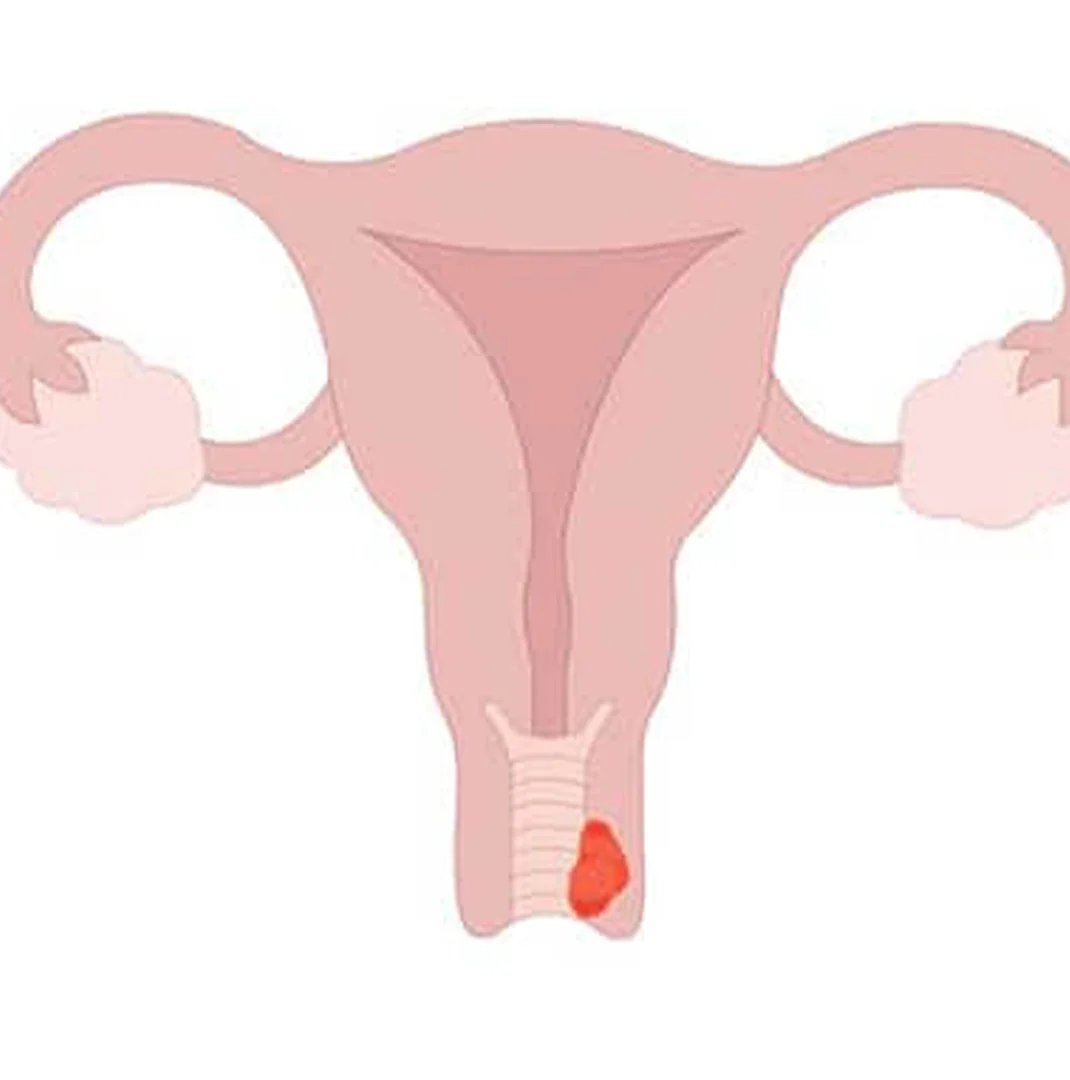
What Is Vaginal Cancer? A Detailed Guide to Understanding, Diagnosing, and Treating Vaginal Cancer
Cancer of the vagina is uncommon but severe, impacting vaginal tissue. It's rarer than cancers of the cervix, uterus or ovary, representing 1-2% of all cancers in women's reproductive system. Despite its rarity, it demands the same level of care because of the potential gravity. Usually, it begins in the cells lining the vagina wall. Its kind may differ based on the cells affected. This document covers vaginal cancer in detail. It includes its forms, origin, signs, ways to identify it, how to treat it, and how to prevent it
Book an Appointment
Types of Vaginal Cancer
Vaginal cancer can manifest in various forms, depending on the type of cells involved:
- Squamous Cell Carcinoma: Most common type. It starts in the squamous cells lining the vagina. It has a slow development, often with precancerous changes first.
- Adenocarcinoma: Begins in mucus and fluid-producing glandular cells. More common in older women. It might spread faster than the squamous cell type.
- Melanoma: A hard and unusual vaginal cancer form, melanoma starts in the color-making cells (melanocytes). It is generally located in the lower vaginal area.
- Sarcoma: Grows in the vagina's connective tissues or muscles. While uncommon, it can happen to both kids and grown-ups. Certain kinds, like rhabdomyosarcoma, are often found in the younger age group.

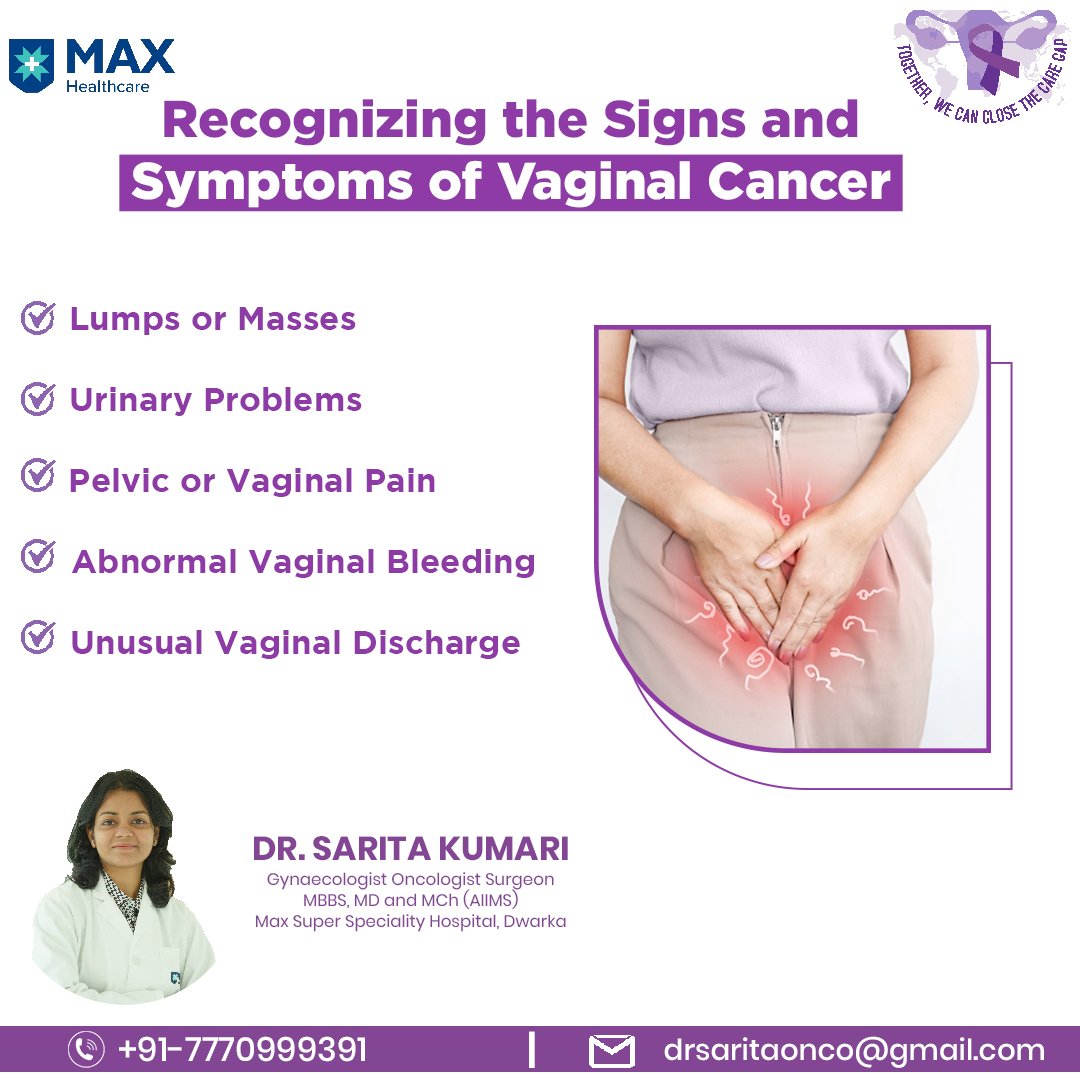
Recognizing the Signs and Symptoms
Early detection of vaginal cancer is critical for effective treatment. Common signs and symptoms include:
- Abnormal Vaginal Bleeding: When bleeding happens after menopause, not on cycle, or after sex, this could be a clue.
- Unusual Vaginal Discharge: Consistent discharge that's watery, bloody, or smells bad might be an alert.
- Pelvic or Vaginal Pain: Discomfort in the lower abdomen or during sex, also known as dyspareunia, could show a problem.
- Lumps or Masses: A visible bump or swelling in the vaginal area might hint at cancer.
- Urinary Problems: If cancer involves the urinary tract, pain, trouble urinating, or regular urinary infections could happen.
Stages of Vaginal Cancer
Vaginal cancer's progression is marked by stages to help with treatment:
- Stage I: This is where the cancer sticks only to the walls of the vagina.
- Stage II: At this stage, the cancer goes beyond the wall of vagina, but it's still located within the pelvic area.
- Stage III: Now, the cancer moves to either lymph nodes or tissues close to the pelvic side wall.
- Stage IV: It's the final stage. Here, the cancer shifts to far-off organs like the bladder, rectum, or lungs.
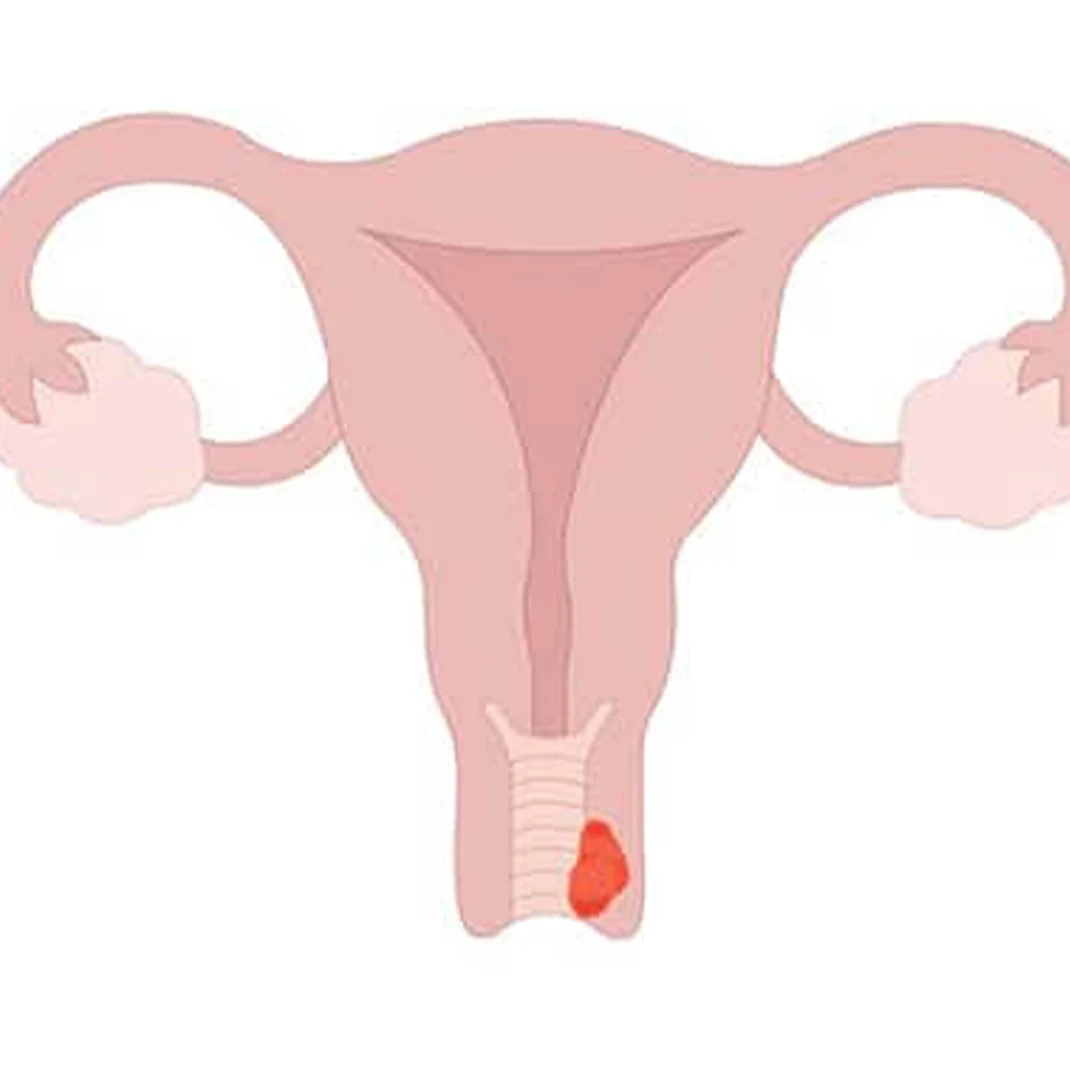
Book an Appointment
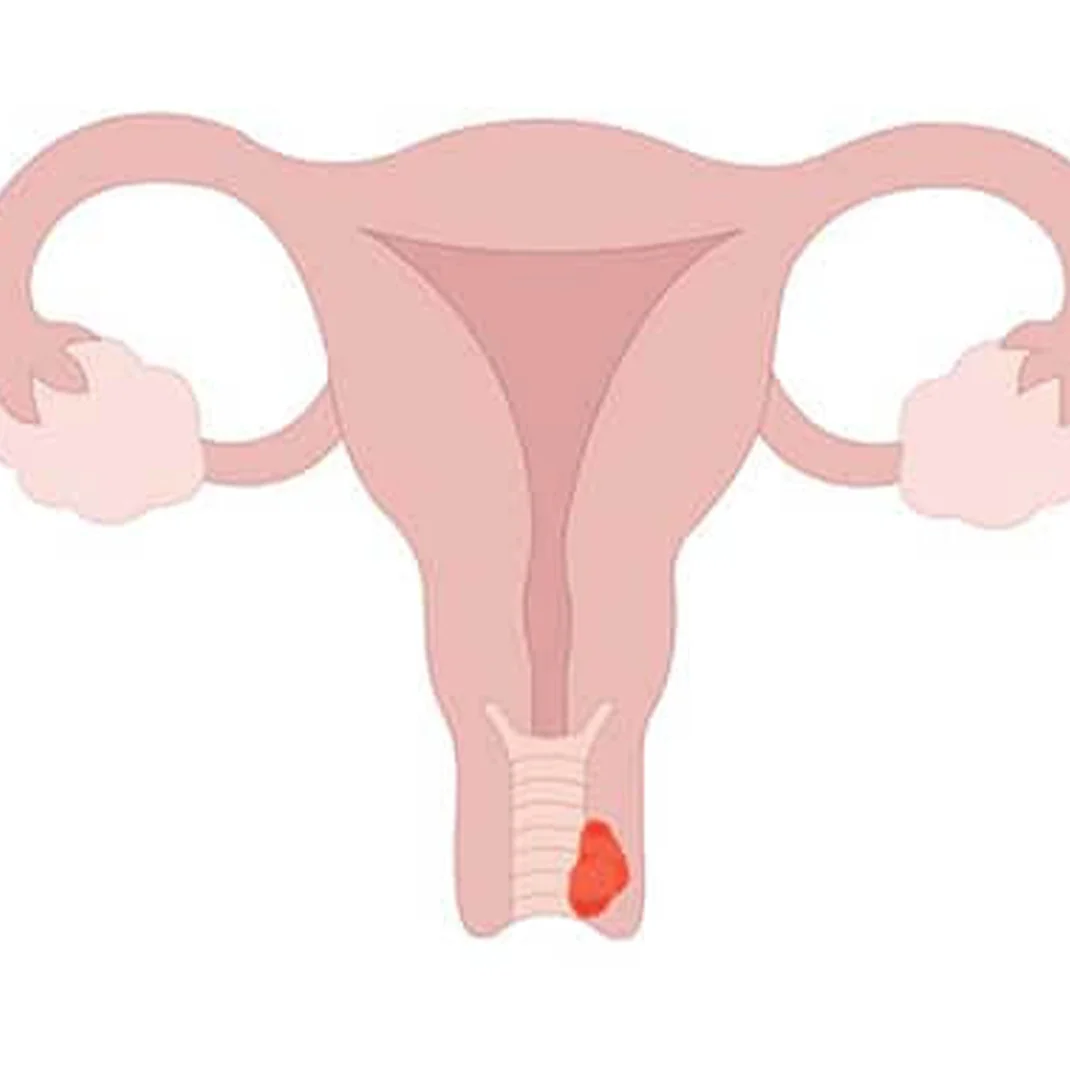
Vaginal Cancer Diagnosis
Checking for vaginal cancer begins with studying the patient's medical past and a full physical check. Next, experts use cutting-edge techniques to confirm if cancer is present. Here's how it usually happens:
- Pelvic Examination: This is an in-depth exploration of the vagina and pelvic area, looking for anything out of the ordinary, like unusual growths or lumps.
- Pap Smear: A test that checks for unusual cells in the cervix or vagina. This could hint at cancer or precancerous changes.
- Colposcopy: In this procedure, a special magnifying tool allows a close-up look at the vaginal lining. Experts look to find lesions or unusual tissue.
- Biopsy: A small sample gets taken from the area in focus and sent to a lab. It gets examined to confirm whether or not there is cancer.
- Imaging Tests: Tests like CT scans, MRI, or PET scans help to see if, and how far, the cancer has spread to surrounding organs or lymph nodes.
Treatment Options for Vaginal Cancer
The treatment for vaginal cancer is tailored based on the type, stage, and overall health of the patient. Common approaches include:
- Surgery:
- Vaginectomy: This is a surgery that could either take out only part, or even all, of the vagina. Doctors mostly use it for cancers caught early.
- Pelvic Exenteration: If the cancer is advanced it means it could've spread to nearby organs. In these cases, doctors might need to remove not just the vagina but also the cervix, uterus, and any other tissues in the pelvic area being affected.
- Radiation Therapy:
- External Beam Radiation: This process uses powerful rays aimed directly at the harmful area from the body's exterior to eliminate the cancer cells.
- Brachytherapy: This inner radiation method deposits radioactive substances right inside or close to the tumor itself, focusing on a particular area for treatment.
- Chemotherapy:
Chemotherapy, given by mouth or vein, fights cancer. It uses medicines to kill the cancer cells & reduce tumors, especially if cancer has traveled to other body parts. - Targeted Therapy:
These high-level treatments target cancer cells' unique genetic markers. The aim? Destroy cancer, save healthy cells. - Immunotherapy:This treatment amps up the body's immune system. It helps it spot and battle cancer cells better. A great hope for advanced or recurrent vaginal cancer patients.

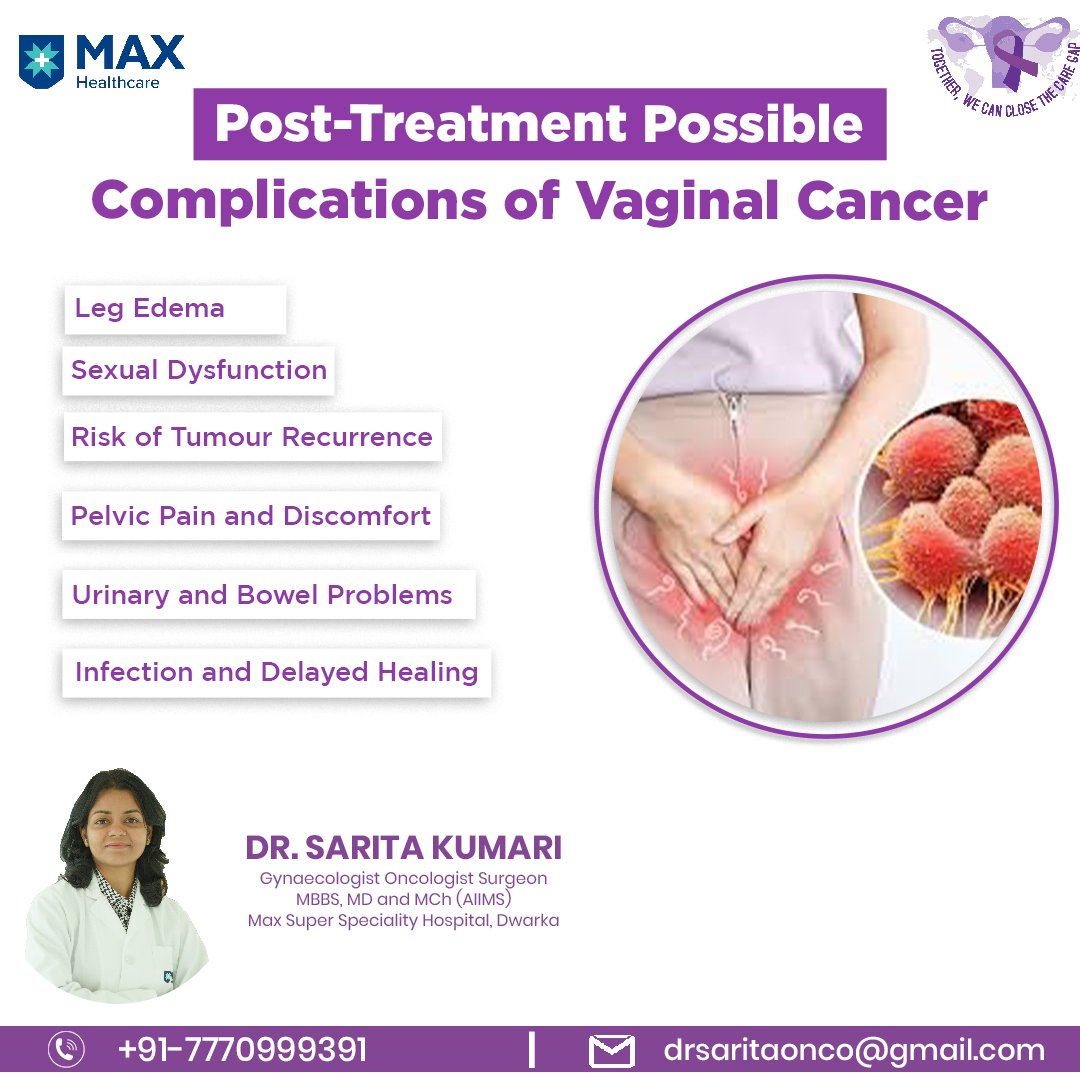
Post-Treatment Possible Complications of Vaginal Cancer
Just like other types of cancer, vaginal cancer can bring about many issues, particularly if it isn't found or treated quickly. Let's look at some complications:
- Spread to Other Organs (Metastasis): Cancer can grow. It might move to closer organs like the bladder, rectum, and lymph nodes. Sometimes, it moves to far organs like lungs.
- Urinary and Bowel Problems: As vaginal cancer grows, it could impact nearby organs. This could cause trouble with peeing, holding in pee, constipation, or blood in your poop. In worse scenarios, an operation might be necessary to take out part of the bladder or rectum.
- Pelvic Pain and Discomfort: Severe vaginal cancer could cause constant discomfort in the pelvic area, possibly impacting daily life and well-being.
- Sexual Dysfunction: Treatments like surgery, radiation, or chemotherapy might alter the vaginal tissue. This could cause dryness, tightness, or scar formation, potentially leading to pain during intimacy or decreased sexual interest.
- Lymphedema: Removing or damaging lymph nodes during treatment might lead to swelling. This can happen in the legs or pelvic area, creating discomfort and problems moving around.
- Infection and Delayed Healing: Treatments like surgery or radiation could increase the risk for infections. It can also slow down healing, especially when chemotherapy weakens the immune system.
Book an Appointment
Vaginal Cancer Survival Rate
How long a person with vaginal cancer lives can vary. It depends on when the cancer was found, the type, and the person's overall health:
- Stage I: Survival rates are high, often exceeding 75-80%.
- Stage II: Survival rates drop slightly to around 50-60%.
- Stage III & IV: Advanced stages show survival rates of 20-40%.
Your age, health, and how well you react to therapy are also factors. Catching this early and getting treatment right away helps your chances. So, regular check-ups and talking to your doctor if you have symptoms are really important

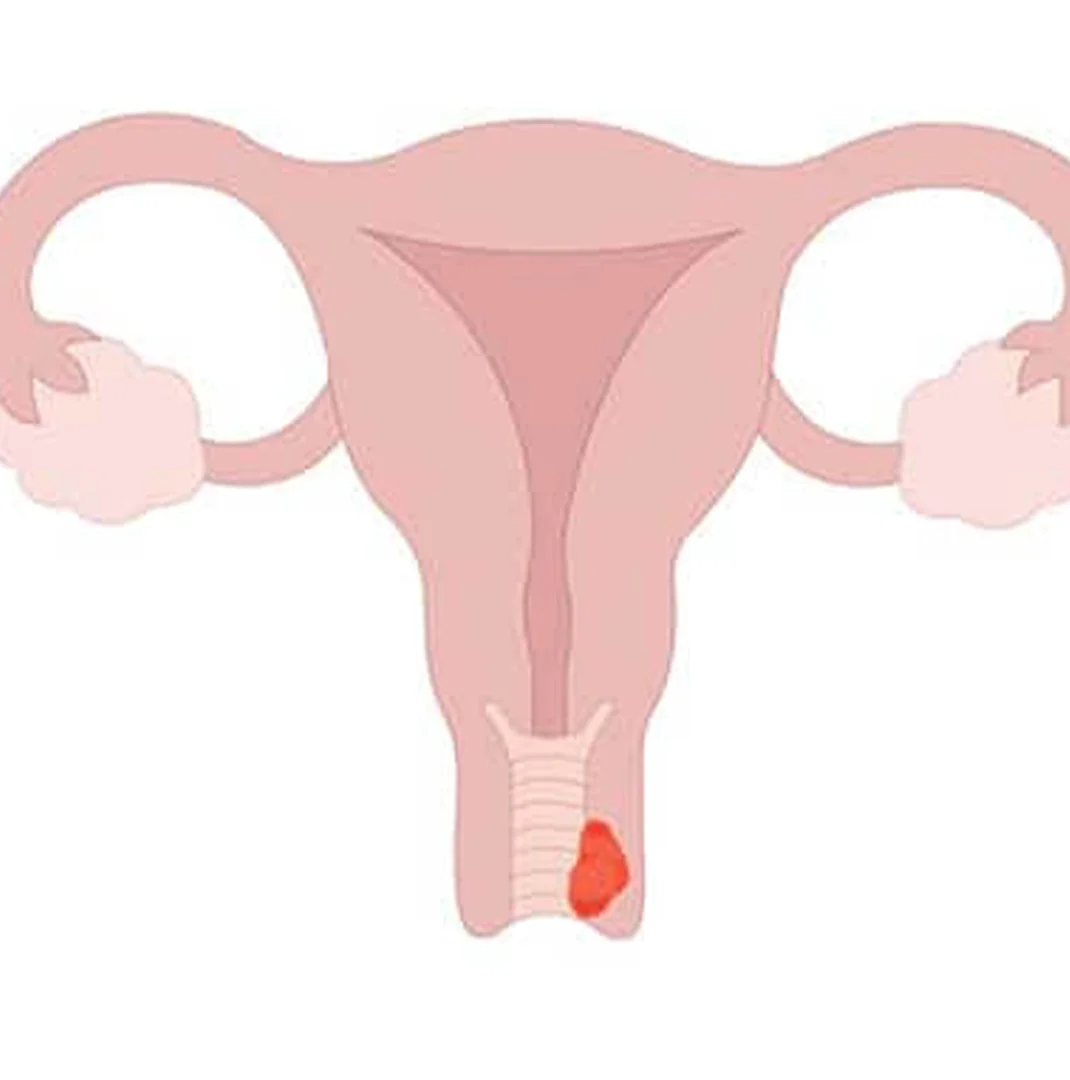
Vaginal Cancer Treatment in India
India is known for its success in treating vaginal cancer. Why? It's down to three things. First, the country has top-level healthcare facilities. Second, they have highly trained cancer specialists. Lastly, the cost of treatment is budget-friendly. The plan for vaginal cancer treatment in Delhi is vast. It includes tests to identify the cancer, surgery to remove it, chemotherapy, and radiation therapy. Every step is customized to suit the patient's unique condition.
Advantages of Choosing India:
- Cutting-Edge Technology: We use modern, top-notch diagnostic tools and fresh therapy choices.
- Highly Qualified Doctors: India houses famous cancer specialists experience in women's cancers, promising expert attention and positive results.
- Cost-Effective Treatment: Vaginal cancer therapy in India costs much less than in Western nations. It offers high-end care at a lower price, without giving up any quality.
Difference Between Vaginal Cancer and Cervical Cancer
|
|
|
|
|
|
|
|
|
|
|
|
|
|
|
|
|
|
|
|
|
|
|
|
|
|
|
|
|
|
|
|
Book an Appointment

Why Choose Dr Sarita for Vaginal Cancer Treatment
Meet Dr. Sarita Kumari as a well-known Gynaecologic Oncologist and Oncosurgeon, she's recognized for her skill and caring attitude in treating vaginal cancer. She has earned a solid education and amassed years of experience, this makes her one of the best Vaginal Cancer Treatment Doctors in India. This lets her offer focused and highly successful treatments for women battling gynecological cancers.
Reasons to Choose Dr. Sarita Kumari:
- Impressive Academic and Professional Background: Dr. Sarita graduated from AIIMS, New Delhi. She received her MBBS, MD, and MCh in Gynaecologic Oncologist and Oncosurgeon. Some of the world's best medical institutions trained her. This gifted her with the current knowledge and skills needed to handle complicated cancer cases.
- National and International Recognition: Dr. Sarita is a well-decorated professional. The Dr. APJ Abdul Kalam Award for Excellence in Comprehension Management of Gynaecological Cancers is among her accolades. She secured travel grants for renowned international forums like ASGO, ENYGO, and JSGO, held in Seoul, Berlin, and Tokyo respectively. Here, she furthers her gynecological oncology studies as she shares her expertise and findings.
- A Specialist in Fertility Preservation and Advanced Treatments: As a member of key oncology task forces, including the ASGO Task Force on Fertility Preservation in Gynae Cancers, Dr. Sarita is committed to offering the latest, most advanced treatment options, ensuring that her patients receive the best care possible.
Affordable yet excellent cervical cancer treatment is available in India, especially Delhi, drawing local and global patients. The price fluctuates based on the therapy type—from surgery to radiation to chemotherapy, but all reasonably priced. Early diagnosis and quick action greatly enhances results. Through medical tourism helpers, patients get top-tier care at costs far lower than in many countries. If you’re looking for a vaginal cancer specialist near me, choose Dr. Sarita for vaginal cancer treatment. She ensures not only high-quality medical attention but also a caring, supportive journey through the process


